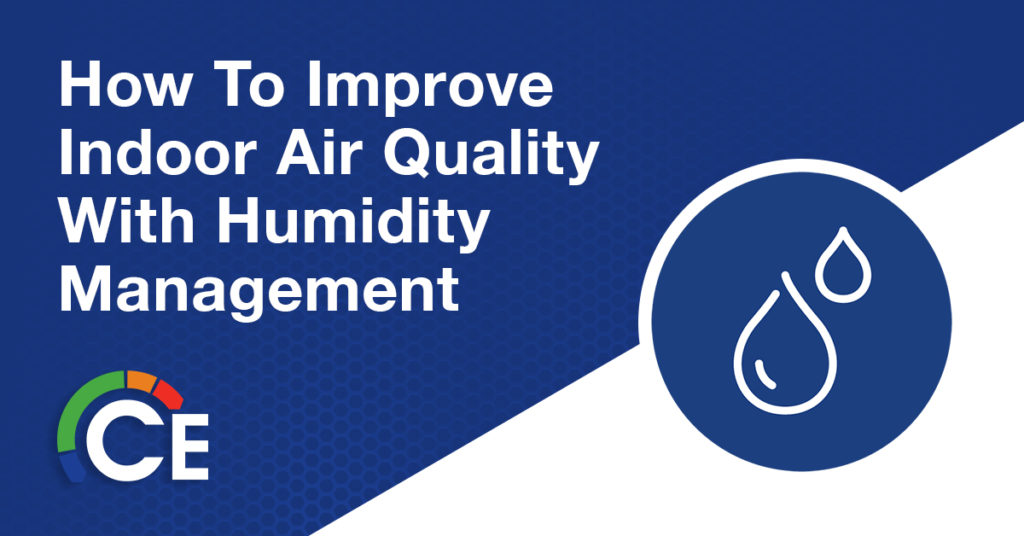As you’ve probably noticed, HVAC clients are more focused on their indoor air quality (IAQ) today than ever before. After all, people are spending more time indoors than they have in years past.
One of the more common questions you may be receiving as an HVAC professional is, “What is the ideal indoor humidity level for my building?” In general, relative indoor humidity should fall somewhere around 60% for ideal health and wellness. This is true for residential and commercial clients.
Fortunately, equipment like humidifiers and dehumidifiers can help keep indoor humidity within the proper range for your clients, resulting in better overall air quality.
Understanding Humidifiers vs. Dehumidifiers
Without the right equipment in place, it’s easy for indoor relative humidity levels to fluctuate wildly inside a building, especially as the seasons change. During the colder winter months, hot air blown out from a forced-air furnace tends to be dry. Meanwhile, humidity can be very high during the summer months, resulting in excess moisture indoors that can be stifling.
Enter equipment like humidifiers and dehumidifiers, which can be excellent additions to residential and commercial buildings. Specifically, a humidifier is a piece of HVAC equipment designed to add moisture to the air as needed. However, the purpose of a dehumidifier is to pull excess moisture out of the air to ensure maximum comfort.
Improving Indoor Air Quality Through Humidity Control
Why does humidity control matter so much, anyway? Humidity levels that are too high or too low can create indoor air quality problems that can affect a client’s health and wellness. High humidity levels, for example, can make a space more prone to mold and mildew growth. When mold grows and mold spores become airborne, they can be breathed in and cause severe health problems, particularly for those with preexisting conditions like asthma and/or allergies.
On the other hand, when humidity levels are too low, the air inside a building may feel extremely dry. This can irritate the airways, leading to problems like respiratory infections and sinus issues.
By having humidification and dehumidification systems in place, clients can enjoy optimal comfort inside any climate controlled building. Meanwhile, mold and mildew formation will be reduced or eliminated.
How CE’s Products Can Help
Now that you have a greater understanding of the benefits of humidification and dehumidification, which products can you recommend to your clients? CE offers a wide range of commercial humidification systems and commercial dehumidification systems to suit your clients’ needs, ranging from the popular Honeywell Whole-Home Steam Humidifier to the Whole-Home Dehumidifier (which comes in two sizes). Other options include the Aprilaire Steam Humidifier, which offers automatic control where evaporative units are placed.
Spreading information about the importance of indoor humidity levels related to indoor air quality can help you keep your clients happier and healthier. To learn more about indoor air quality topics ranging from sterilization to purification and filtration, check out CE’s comprehensive IAQ guide, which is available to download for free here!

